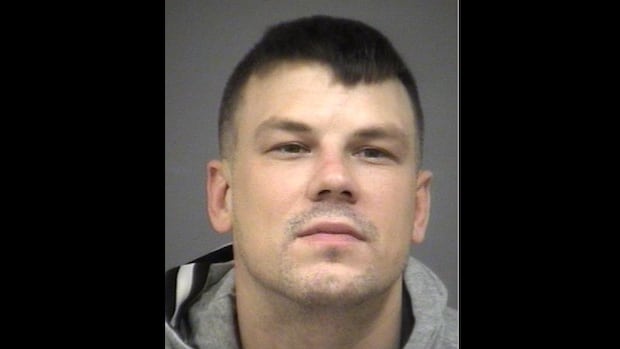In an unusual move, a Manitoba court is set to hear victim impact statements from the family of Ashlee Shingoose on Friday, nearly one year after her killer’s trial and sentencing.
Courts do not typically allow statements to be entered into the record after sentencing has concluded, but a news release from Manitoba Court of King’s Bench last week called the circumstances of the case “exceptional.”
Shingoose, a 30-year-old woman from St. Theresa Point Anisininew Nation, was the first of four First Nations women murdered by serial killer Jeremy Skibicki. He was convicted on four counts of first-degree murder in July 2024.
Family members of his other victims — Morgan Harris, 39, and Marcedes Myran, 26, both originally from Long Plain First Nation, and Rebecca Contois, 24, a member of O-Chi-Chak-Ko-Sipi First Nation, gave impact statements at Skibicki’s sentencing last year.
No one could speak for Shingoose — who was given the name Mashkode Bizhiki’Ikwe, or Buffalo Woman, by Indigenous community members — because her identity was unknown at the time. She wasn’t identified until March of this year.
That’s why, at the request of Crown prosecutors, the court agreed to hear the family’s impact statements.
Marc Kruse, the director of the Indigenous legal learning and services at the University of Manitoba’s law school, said the hearing is unique and significant.
“From a common-law perspective, it’s almost rounding out the factual findings, and allowing the record to be complete,” Kruse said.
“From an Indigenous legal order perspective and restorative justice perspective, this is an opportunity for the family to have their story told, and how it’s impacted them heard by the court.”
Skibicki was sentenced to life in prison with no chance of parole for 25 years. Nothing said in the hearing will affect his sentencing, and he is not expected to attend, although the court said his counsel will be there.
His trial last year, presided over by Court of King’s Bench Chief Justice Glenn Joyal — who will also preside over Friday’s hearing — incorporated traditional First Nations practices, such as smudging and placing a headdress on the Crown attorney’s table.
It also incorporated modern symbols of missing and murdered Indigenous women and girls, like a red dress symbolizing Mashkode Bizhiki’ikwe’s presence, as part of an effort to advance reconciliation between Indigenous people and the court.
Friday’s hearing can be seen as a continuation of those efforts, said Kruse.
Legal authority questioned
But the exceptional nature of the hearing has one legal expert questioning whether it’s in the court’s authority.
“With great respect to Chief Justice Joyal, it seems pretty clear that he just has no power to do this,” said Andrew Flavelle Martin, a law professor at Dalhousie University.
Although the court may have good intentions, Martin worries about judges making changes to standard court procedures.
“The protections and the rules we have in criminal procedure and criminal law, they’re so they protect everybody, right?” he said.
“Even though in the one-off, ad hoc, this particular time, this seems like a good idea, to mess with the fundamentals of that really needs to be done with care and direction.”
Courts should come up with a formal procedure to allow statements to be read in court, in cases where a homicide victim’s identity becomes known after a trial has concluded, Martin said.
But Kruse said bringing the family back to deliver their statement fits with principles of Indigenous law.
“From an Indigenous legal perspective, our justice is never complete. It’s not as if there’s one trial and then there’s finality. There is always that healing. There’s that ongoing restoring of the community,” he said.
“So from an Indigenous legal order perspective … the court is following Indigenous protocols, I think in a good way here.”
Not the end of the journey
Assembly of Manitoba Chiefs Grand Chief Kyra Wilson said Friday’s hearing is an opportunity to show support for Shingoose’s family.
“Ashlee Shingoose, she has a story,” Wilson said. “She was important to her family. She was important to anyone that was in her circle and in her life. And we need to be able to honour and respect who she was.”
The hearing also won’t mark the end of the journey for Shingoose’s family.
While the remains of the other three women have been found, Shingoose’s remains are believed to be in the Brady Road landfill in Winnipeg.
Earlier this year, the Manitoba government promised to search for her remains. Premier Wab Kinew says the test phase has been started in that search.
Crisis support is available for anyone affected by these reports and the issue of missing and murdered Indigenous people through a national 24-hour hotline at 1-844-413-6649.
Health support services such as mental health counselling, community-based support and cultural services, and some travel costs to see elders and traditional healers are available through the government of Canada. Family members seeking information about a missing or murdered loved one can access Family Information Liaison Units.






